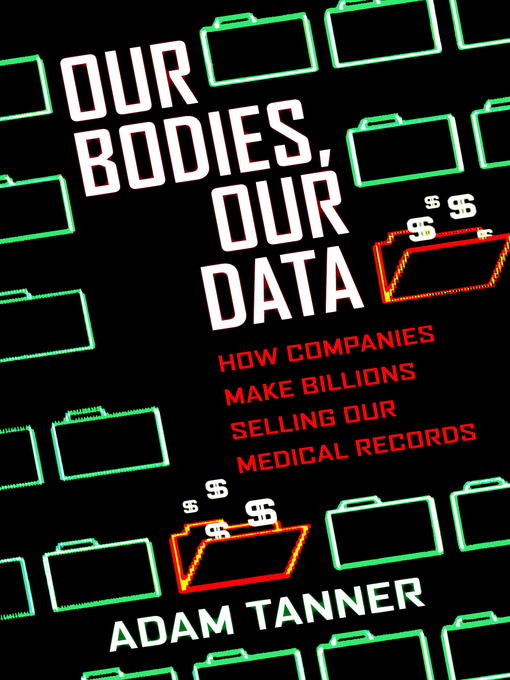
Our Bodies, Our Data
How Companies Make Billions Selling Our Medical Records
چگونه شرکتها بیلیونها را تبدیل به فروش سوابق پزشکی ما میکنند؟
کتاب های مرتبط
- اطلاعات
- نقد و بررسی
- دیدگاه کاربران
نقد و بررسی

November 1, 2016
A disturbing look at the threat to privacy created by the lucrative and growing health care data-mining industry.In his previous book, What Stays in Vegas: The World of Personal Data--Lifeblood of Big Business--and the End of Privacy as We Know It (2014), Tanner, a writer in residence at Harvard University's Institute for Quantitative Social Science, took a broad look at the enterprises that gather and sell computer-generated data on consumers. Here, he zeroes in on the trade in patient medical information, discovering that an industry dealing in intimate personal information is very closemouthed about its own inner workings. Tanner is a persistent and experienced researcher, however, and the information he gleans paints an alarming picture. As doctors and hospitals adopt electronic health records, companies operating these systems sell the information to data-mining enterprises, who in turn are making big money marketing the data on millions of patients to insurers, makers of medical devices, drug manufacturers, physicians, and attorneys. Although the patient's identity is removed from a record, enough information is retained that can reidentify the person. Through his own personal experience in changing health insurance plans, Tanner reveals how patients have little say in how their data will be shared. He asserts that our health care system has failed to provide easy access to comprehensive medical records by doctors, who need it for treatment of their patients, and he rebuts the claim by data miners that the information they gather advances science by providing valuable information to medical researchers. Finally, he takes a stab at reforming the system, a task that first requires that patients know that this threat to their privacy exists and how it affects them, information that Tanner provides in detail. A thorough report, carefully researched and well-documented, aimed at both general readers and policymakers.
COPYRIGHT(2016) Kirkus Reviews, ALL RIGHTS RESERVED.

December 1, 2016
So much for health-care confidentiality. Tanner, a former Reuters correspondent who conducted research at Harvard University's Institute for Quantitative Social Science, begins his thoroughly reported story with this alarming line, Soon after you tell your doctor about an intimate medical problem, data about your condition are sold commercially to companies that have nothing to do with your treatment or billing. These data miners leave out names and contact details, but they do list age, gender, and conditions that pharmaceutical companies can use to figure out which doctors prescribe which drugs. Originally, scientists thought that programming computers for hospital pharmacies would save lives by preventing patients from getting multiple prescriptions for the same drug and alerting pharmacists about prescriptions that might cause adverse interactions with other medications. Today, digital files are also used to make money and target advertising. Tanner says he wrote this book hoping to foster debate on how we can best balance the promise that big data offers to advance medicine and improve lives while also preserving the rights and interests of patients. Mission accomplished.(Reprinted with permission of Booklist, copyright 2016, American Library Association.)

























دیدگاه کاربران